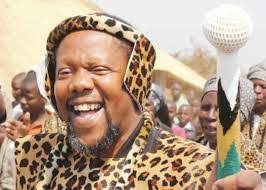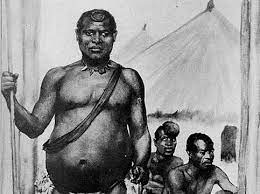Fortune Nkosi
Bulawayo—The Zanu PF government is being dishonest by commissioning a monument in memory of one of the historic battles at Pupu in southern Zimbabwe while neglecting local initiatives, one of the few outspoken chiefs in the country, Felix Ndiweni of Ntabazinduna in Matabeleland North, has said.

The Pupu Battle monument site is some 50km east of Lupane and marks the place where the royal Ndebele army under King Lobengula defeated an imperialist British South Africa Company (BSAC) military outfit led by Allan Wilson in 1893.
Following years-long complaints among the Ndebele people that the site was suffering deliberate neglect, President Emmerson Mnangagwa last Thursday commissioned the memorial monument, turning it into a national symbol of Ndebele history and culture.
But Chief Ndiweni, often coming out as an advocate of the rights of the Ndebele people, accused the Mnangagwa administration of hypocrisy for “pretending” to be concerned about people from southern Zimbabwe when successive Zanu PF governments have reportedly denied them the chance to build their own preferred monuments relating to the Gukurahundi massacres.
The killings took place between 1982 and 1987 when the government of then Prime Minister, the late Robert Mugabe, unleashed the Korean-trained Fifth Brigade on suspected dissidents and, in the process, massacred an estimated 20,000 civilians in the Matabeleland regions and parts of the Midlands province, according to the Catholic Commission for Justice and Peace (CCJP).
President Mnangagwa, in charge of national intelligence from independence in 1980, has often been accused of being one of the Gukurahundi masterminds.
In an open letter, Chief Ndiweni said the Ndebele people tried four times, “to erect monuments near mass graves emerging from the Ndebele genocide, war crimes and crimes against humanity (Gukurahundi)”.
However, according to him: “On each of those occasions, the erected monuments were destroyed by the Zanu PF administration…On occasion even with the use of explosives. Now the same Zanu PF administration wishes the Ndebele people to celebrate a monument it has unilaterally chosen for them,” complained Ndiweni.
The individuals that vandalised the monuments have not been officially identified, but there are strong suspicions in the region that it was the work of security and ruling Zanu PF agents deployed to muffle Ndebele initiatives to retell their own history on the highly sensitive killings.
A third Gukurahundi memorial plaque set up at the Bhalagwe concentration camp in Maphisa, Matabeleland South, was explosive-bombed.
A fledgling political party, Freedom Alliance, said then that the vandalism was meant to intimidate the Ndebele people from telling their own history.
The memorial monument was installed in October 2021 and destroyed by unknown perpetrators on 4 January 2022.
This bombing occurred at the same location where two other plaques were vandalised.
Chief Ndiweni accused the Mnangagwa government of distorting Ndebele history by neglecting more significant historical monuments, insisting that another battle fought at Gagade was bigger than that at Pupu and, therefore, must have been prioritised.
“The first place the Zanu PF administration should have looked at, if it was genuine in this regard, would have been The Battle of Gadade,” he said.
At last week’s commissioning ceremony, President Mnangagwa also posthumously conferred national hero status on the Ndebele commander, Mtshane Khumalo, whose poorly armed troops defeated Allan Wilson’s superior army in a battle seen to have inspired the first widespread war against colonial imperialism in the 1890s in present day Zimbabwe.
Chief Ndiweni, however, accused President Mnangagwa of failing to understand Ndebele military history by honouring Khumalo and “imposing” him as a hero, saying the commander was to blame for the Ndebele army’s defeat at Gagade.
“This is the very same Mtshane Khumalo who led the Imbizo regiment to disaster at Gadade where it fell,” said the outspoken chief.
“When this idea of conferring hero status was first mooted, we rejected it in our numbers. It is important to ask who advanced this idea? Who was consulted about this whole matter?
“Due to the importance of this matter to the Ndebele nation, was a referendum held about it and if not, why not? Did the Ndebele nation have a say in this matter (hero status)? Or are we talking about a Zanu PF imposition?” said Ndiweni.
The chief suggested that it would have been more befitting to make Lobengula, the king, a national hero ahead of Khumalo.
On 3 March 2011, while launching the anti-sanctions campaign aimed at collecting at least two million signatures on a petition, the late former president, Robert Mugabe, recognised Lobengula as an anti-colonial hero.

“We have fought them (the West) for too long now,” Mugabe said. “It started with (King) Lobengula and his people in Matabeleland.”
Chief Ndiweni added that it was dishonest for the Zanu PF government to simulate honouring the Ndebele people through monuments and national hero status when, in practice, it was still suppressing people from southern Zimbabwe.


Comments are closed.